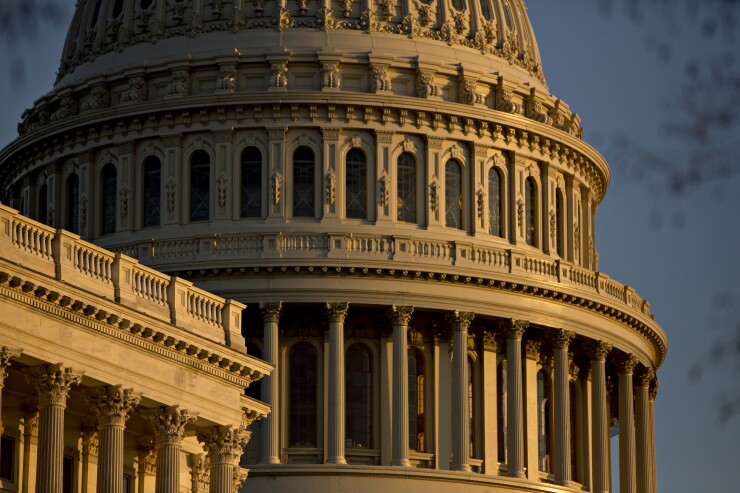House lawmakers introduced legislation this week in a new attempt to repeal the Cadillac tax, the Affordable Care Act's tax on high-cost health plans that has been a continuing pain point for employers.
Amid a busy Capitol Hill afternoon on Thursday, several lawmakers in the House introduced
Beginning with the 2022 tax year, the law requires plan sponsors and insurers to pay a 40% excise tax on the excess cost of employer-sponsored health coverage for employees — amounts over $11,100 for employee-only and $29,750 for family coverage, adjusted for inflation annually.
“For policymakers struggling to determine how to open the government tomorrow, 2022 must seem like an eternity,” says American Benefits Council President James A. Klein. “But employers don't have that luxury. They must make benefit plan decisions well in advance, to avoid imposing sudden changes in plan design or cost-sharing with employees. So repeal of the tax now must be a priority.”

Repealing the Cadillac tax has broad bipartisan support in Congress. In the previous congressional session (2017-2018), more than 300 members in the House — 168 Democrats and 137 Republicans — along with 33 Senators from both parties co-sponsored repeal legislation, according to the Alliance to Fight the 40, a coalition of employers, patient advocacy groups and other stakeholders.
While unable to pass repeal legislation, lawmakers have had success in delaying the tax from taking effect. It was originally created as part of the ACA largely as a way to help fund benefits to the uninsured under the law.
The Cadillac tax is not a tax on rich benefits; it is a tax on plans that cost more because of geography, age of members or more dependents covered, explains Tracy Watts, a senior partner at Mercer and an alliance member.
“An analysis of data from Mercer’s national survey found very little difference in the average actuarial value — which measures benefit richness — of employer plans at risk for hitting the tax threshold compared to plans not at risk.”
“Contrary to its inaccurate name, the Cadillac tax does not just affect so-called ‘overly generous’ health plans,” Klein says. “It hits plans that are expensive for reasons beyond the control of employers and working families who are already stretched to the limit. Plans with large numbers of women, older workers, or families suffering chronic conditions or catastrophic health events are most likely to be subject to the tax. The tax is flawed in design and inequitable in application.”
“The American people have made it clear that they want Congress to address the rising cost of healthcare,” adds Rep. Joe Courtney (D-Conn.). “Out-of-pocket costs are unaffordable for growing numbers of families, even those who have insurance. If the 40% excise tax goes into effect, we know this affordability crisis will dramatically worsen.”





